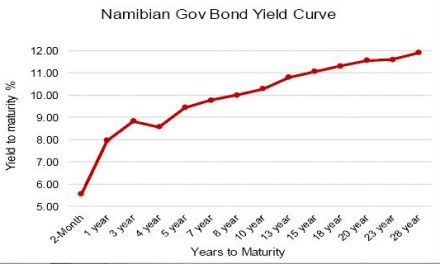
SA’s intention to withdraw from the ICC has zero economic fallout
South Africa’s intention to withdraw from the International Criminal Court caused quite a flurry in law circles. Several NGOs based in South Africa expressed their dismay and even the authoritative International Bar Association, criticised the SA government for their intended withdrawal.
Then, earlier this week the government of the Gambia announced they will also exit the holy legal grail following Burundi, the first African country to announce its exit earlier this month.
Meanwhile, earlier this year, Kenya had also announced its intention to conduct a public debate on the benefits of remaining in the ICC.
It is not a big issue if Burundi and the Gambia decide they no longer feel welcome at the ICC, but it will certainly be a more serious matter if South Africa or Kenya, or both, make their withdrawal official.
It is amusing that the Gambian information minister referred to the ICC as the International Caucasian Court, obviously flinging some mud in the face of the ICC officials. Of the ten cases prosecuted by the ICC since 2002, nine were against Africans so it is no wonder that there is a perception that the ICC only serve European interests. If this trend continuous, the perception in Africa that the ICC is out for our blood, will only be reinforced.
After South Africa’s announcement and the acerbic reaction it evoked, one would have expected to see movement in the exchange rate of the Rand. This is what usually happens when the SA president makes one of his imbecilic statements, but not a glitch. The Rand even appreciated a little, trading at a respectable R13.84 to the US Dollar by week’s end. This immediately showed that as far as the rest Europe is concerned, South Africa’s intention to leave is no big deal. Similarly, any other African country’s decision to exit the ICC will not cause much of a stir.
It must be remembered that the USA was one of only seven countries that voted against the Roman Statute in 2002. This was the multi-lateral base on which the legal nuts and bolts of the ICC were founded. Many interesting arguments have been offered by US lawyers why they do not need to be a member of any international criminal court, and it has actually swollen to quite an impressive body of law literatur and legal wrangling. Futhermore, neither Israel nor China consented to the Rome Statute and have remained outside to this day. Ironically, the other four abstainees are all Arabic countries.
So, if these large economies resist memberhip, what leg does the ICC have to stand on, defending itself against self-serving Euro-centric accusations?
It is starting to look more and more like the ICC truly is a European creation, and that Europe’s interests will be served first. While I do not say the Africans prosecuted or intended to be prosecuted by the ICC, are docile babes, there definitely is a gallery of wrongdoers the world over who have not yet featured on the august Court’s radar.
It must be a fairly complex issue to get an institution like the ICC to operate on some level of consensus. I mean, if China, Israel and the USA remain outside the fold, what demonstrable use is there for such a court outside the borders of Europe. Perhaps, the ICC needs a rethink and once a new legal platform has been drafted, maybe this time it should be ratified in Beijing, or Nairobi or Pretoria. That way we can also depart from the insistence of the Rome Statute, the name of which blatantly declares that it is a European concoction.
It is not my place to offer a future roadmap for a workable international organ to enforce laws that claim to protect humanity, but at least I can point to a number of labels that must be avoided. And as long as the big guns chose not to play, then it seems like a waste to continue flogging the ailing horse.
The resentment and opposition against the ICC is just an early wake-up call that at least two things must happen before it hopes to regain any credibility. First, it must be based on a real international treaty, ratified by the vast majority of jurisdictions that are members of the United Nations. Secondly, as long as the USA, China and Israel stay uncommitted, any international court with a similar aim, will eventually die for lack of participating members. For any court to exert authority, it must first be seen to possess that authority, by the people it serves. If not, then expect more walk-aways.










































